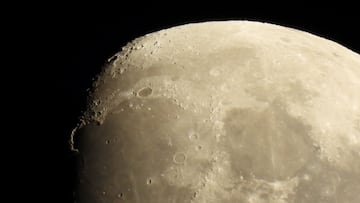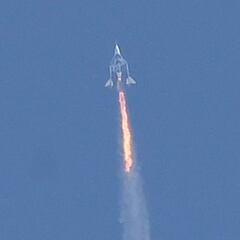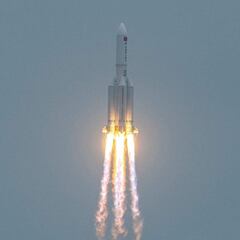Why was the 1969 moon landing important?
52 years since the American victory in the 'space race,' we take a look at the significance of what became one of the defining stories of the 20th century.


On July 20 1969, Neil Armstrong and Buzz Aldrin became the first humans to walk on the surface of the Moon. Since then there have been six successful moon landings but none since December 1972. With the anniversary of the successful mission, and amidst NASA plans to resume moon missions by 2024, you should read up on this generation defining moment.
Happy Moon Landing Day!
— National Air and Space Museum (@airandspace) July 20, 2021
Today in 1969, Apollo 11 astronauts Neil Armstrong and Buzz Aldrin became the first humans to set foot on the Moon. This photo shows both astronauts on the Moon, with Armstrong reflected in the visor of Aldrin's helmet. pic.twitter.com/d1kRCZb1Pd
The Cold War
Between 1945 and 1991 the United States and the Soviet Union engaged in what is now known as the Cold War. Both sides engaged in numerous proxy wars with smaller countries, by either sponsoring warring factions or sending soldiers to fight, without going to war against each other.
But it was not just a war of armies. Both nations engaged in a technological challenge to see who was superior. After the Americans detonated the first atomic weapon in August 1945, the Soviets felt they had to match the Americans in scientific capability. The USSR tested their first nuclear bomb in 1949 and took the first steps into space by sending Sputnik, the world's first satellite, into orbit around the planet in 1957.
Thus, the 'space race' began.
The 'space race'
The Soviets achieved the first victory when on April 12 1961, they sent pilot Yuri Gagarin into the Earth's orbit, the first man in space. American President John F. Kennedy announced a month later, "I believe this nation should commit itself to achieving the goal, before this decade is out, of landing a man on the Moon and returning him safely to Earth."
The stakes had been raised but there was only one more obstacle. Actually getting to the Moon.
Played against the backdrop of the Vietnam War and the civil rights movement, the two superpowers engaged in hurried rocket development. The US had many tests and many failures which resulted in deaths of astronauts.
But finally in 1969 NASA was prepared to take on the challenge mere months before President Kennedy's lunar deadline as up.
The landing itself
After setting off July 16, the three-man crew of Commander Neil Armstrong, Buzz Aldrin and Michael Collins let Cape Canaveral in Apollo 11, their craft for the journey. There was no certainty that their mission would be a success and several astronauts had perished before in disasters on the launchpad.
Without a hitch the crew reached the Moon's orbit. Collins stayed in the command module while Armstrong and Aldrin went to the surface of the Moon. It was here that Armstrong uttered the famous words: "that's one small step for (a) man, one giant leap for mankind."
ONE SMALL STEP: On this day in 1969, astronauts Neil Armstrong and Edwin “Buzz” Aldrin became the first men to walk on the moon. https://t.co/6XejlMp9Q5 pic.twitter.com/rrjyeeIqAQ
— ABC News (@ABC) July 20, 2021
The crew returned to Earth July 24 safely and were greeted by six million people celebrating on the streets of New York City. The US had won the race.
The results and significance
The victory was seen in the West as an victory of the capitalist world system over the communists. Although not admitted at the time, the Soviets had been technologically unable to do their own moon mission. For the public, it was a serious media event and over twenty percent of the world's population watched humans walk on the Moon for the first time.
Apollo 11 U.S. Customs declaration after first moon landing by astronauts of today 1969: pic.twitter.com/z4F7Lx3xLl
— Michael Beschloss (@BeschlossDC) July 20, 2021
Visiting the Moon gave humanity the first glimpses of how our planet was created, a ball of floating rock drifting listlessly through space. The samples gathered from the satellite helped decipher what the Moon was, what it was made of and how it got there. It answered questions about our planet, asked new ones and generated stunning photos that showcased our planet and reflected the technological brilliance humanity can create.
However, after the first successful manned mission, the follow up missions were nowhere near as popular and only three years later moon missions were halted. NASA's eyes turned toward plans for shuttles and the ISS, away from rocket engineering.
Related stories
But in recent years there has been renewed focus on the Moon. NASA announced in 2017 that their plan was to put the first woman on the Moon as well as crating plans to build a human colony. The first test mission is due in November of this year.
And it hasn't just been the US in planning further lunar flights. Both China and India have joined Russia in creating plans to return to the Moon. Perhaps there will be another space race between the US and the new world superpower, China, that will reignite interest in humanity's possibilities beyond our own planet.

